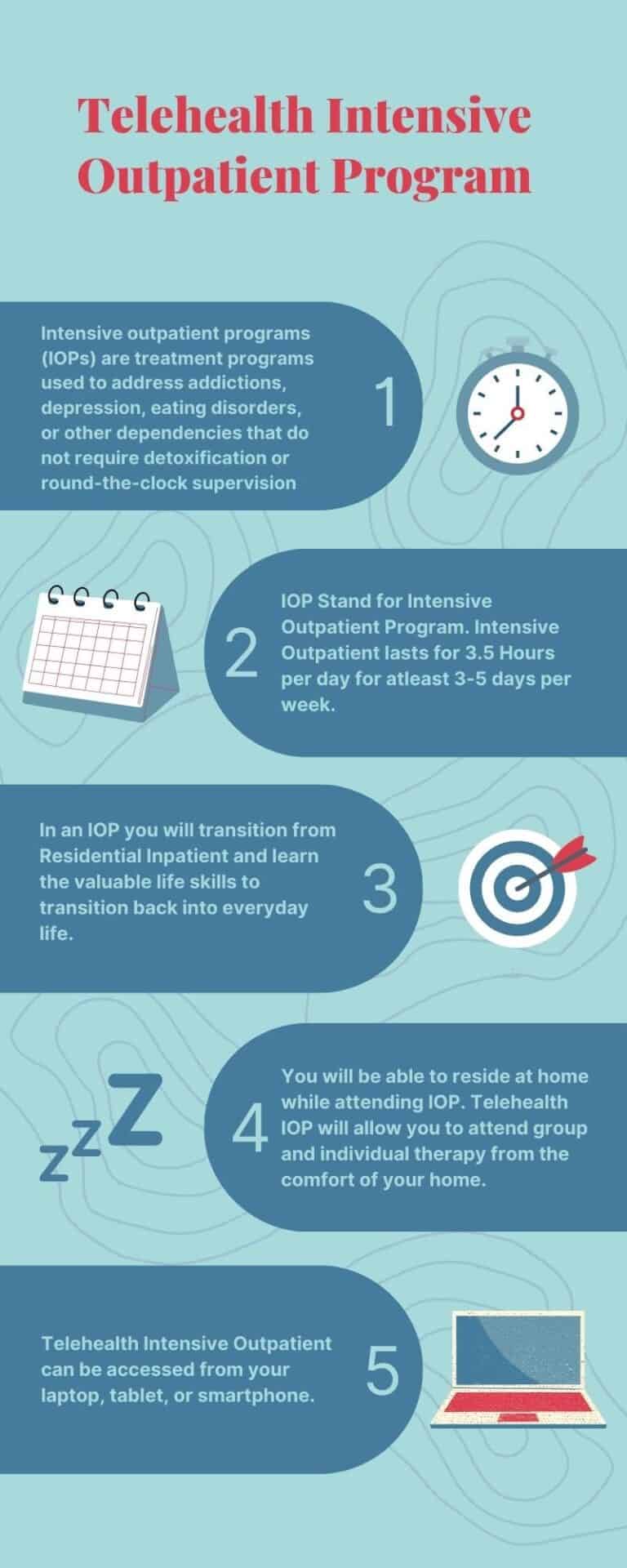Proven Success with Intensive Outpatient Program (IOP) for Substance Abuse Recovery.
Proven Success with Intensive Outpatient Program (IOP) for Substance Abuse Recovery.
Blog Article
Navigating the Intricacies of Dual Medical Diagnosis Therapy Within an Extensive Outpatient Program Establishing
In the realm of mental wellness and dependency treatment, the crossway of double medical diagnosis provides a nuanced challenge that demands a thorough and tailored approach. By discovering the ins and outs of double diagnosis treatment within this extensive outpatient context, a clearer course emerges in the direction of all natural and sustainable recovery for those grappling with these linked difficulties.
Double Medical Diagnosis Review
What is the importance of understanding dual diagnosis in mental health and wellness treatment? It is crucial to identify and address this comorbidity as it can considerably influence the performance of psychological wellness therapy.
Understanding dual diagnosis is necessary as it calls for an extensive and incorporated technique to treatment. By acknowledging the interaction in between material use and mental health and wellness, doctor can tailor interventions to satisfy the distinct demands of each person. This all natural technique not only addresses signs and symptoms however also targets hidden aspects that contribute to the dual medical diagnosis.
In addition, neglected dual diagnosis can cause a cycle of regression and intensifying mental wellness signs. By identifying the complexity of double diagnosis and supplying specialized treatment, health care experts can sustain individuals in achieving long-lasting healing and improved mental wellness.
Tailored Therapy Plans
Acknowledging the intricate interplay between compound use disorders and psychological health conditions, the growth of tailored treatment plans is paramount in attending to the intricacies of dual diagnosis in psychological health and wellness therapy. Customized treatment strategies are individualized techniques that take into consideration the distinct requirements, difficulties, and goals of individuals dealing with double diagnosis. These strategies are developed collaboratively by a multidisciplinary team of professionals, including psychiatrists, psycho therapists, social workers, and addiction experts, to make sure comprehensive and incorporated care.
Tailored therapy strategies normally entail a mix of therapies, medications, and behavioral interventions that target both the compound use disorder and the psychological health and wellness problem all at once. These plans might consist of cognitive-behavioral therapy, dialectical behavior therapy, medication-assisted therapy, specific counseling, group therapy, and family treatment, to name a few evidence-based treatments. By personalizing treatment methods to individual scenarios, customized strategies can resolve the origin triggers of twin diagnosis, advertise long-term recuperation, and improve general top quality of life for people fighting with co-occurring problems.
Integrated Care Technique

By including social treatments like family members therapy, professional assistance, and neighborhood resources, the treatment becomes more all natural and tailored to the person's certain requirements. Generally, an incorporated care technique in double diagnosis therapy within an extensive outpatient program setup intends to supply detailed, efficient, and individualized treatment to people facing co-occurring problems (Intensive Outpatient Program (IOP)).
Difficulties in IOP Setting
In the context of twin diagnosis treatment within an extensive outpatient program, navigating the complexities of co-occurring compound use problems and psychological wellness conditions offers considerable challenges. One of the main obstacles in the IOP setup is the coordination of treatment between mental health and wellness professionals and chemical abuse specialists to make sure a comprehensive therapy method. This requires efficient interaction, partnership, and a deep understanding of how these problems engage and affect each various other.
Furthermore, the changing nature of material usage disorders and useful source mental wellness conditions adds another layer of complexity - Intensive Outpatient Program (IOP). Customers in an IOP might experience abrupt changes in their signs and symptoms or compound food cravings, needing timely treatment and change of therapy techniques. Balancing the strength of therapy and assistance while enabling customers the adaptability to manage their daily duties can be a fragile balance to preserve
Additionally, addressing preconception and resistance to therapy within the IOP setting can impede development. Some individuals may be hesitant to disclose their twin diagnosis or may feel embarrassed, see this preventing their interaction in the restorative procedure. Overcoming these obstacles necessitates a supportive and non-judgmental environment that promotes depend on and visibility.

Collaborative Expert Efforts

Collaborative efforts likewise prolong to regular interaction and information sharing among group participants to make certain a natural therapy technique - Intensive Outpatient Program (IOP). This may involve instance conferences, joint sessions with the patient, or shared paperwork to track progress and change therapy approaches as needed. In addition, partnership might consist of involving other medical care experts such as medical care medical professionals or family members specialists to provide alternative support to the client. Ultimately, a go to my blog united front of specialists collaborating boosts the efficiency of double medical diagnosis treatment within an intensive outpatient program.
Verdict
To conclude, effective dual medical diagnosis treatment within an extensive outpatient program setup requires customized therapy plans and an integrated care strategy. Challenges may develop in this setup, but collective initiatives amongst professionals can help browse these complexities. By addressing the special needs of individuals with co-occurring psychological health and material use conditions, IOP programs can give comprehensive and alternative like support recuperation and general wellness.
Report this page